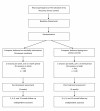Study protocol: a randomized controlled trial of a computer-based depression and substance abuse intervention for people attending residential substance abuse treatment
- PMID: 22325594
- PMCID: PMC3306755
- DOI: 10.1186/1471-2458-12-113
Study protocol: a randomized controlled trial of a computer-based depression and substance abuse intervention for people attending residential substance abuse treatment
Abstract
Background: A large proportion of people attending residential alcohol and other substance abuse treatment have a co-occurring mental illness. Empirical evidence suggests that it is important to treat both the substance abuse problem and co-occurring mental illness concurrently and in an integrated fashion. However, the majority of residential alcohol and other substance abuse services do not address mental illness in a systematic way. It is likely that computer delivered interventions could improve the ability of substance abuse services to address co-occurring mental illness. This protocol describes a study in which we will assess the effectiveness of adding a computer delivered depression and substance abuse intervention for people who are attending residential alcohol and other substance abuse treatment.
Methods/design: Participants will be recruited from residential rehabilitation programs operated by the Australian Salvation Army. All participants who satisfy the diagnostic criteria for an alcohol or other substance dependence disorder will be asked to participate in the study. After completion of a baseline assessment, participants will be randomly assigned to either a computer delivered substance abuse and depression intervention (treatment condition) or to a computer-delivered typing tutorial (active control condition). All participants will continue to complete The Salvation Army residential program, a predominantly 12-step based treatment facility. Randomisation will be stratified by gender (Male, Female), length of time the participant has been in the program at the commencement of the study (4 weeks or less, 4 weeks or more), and use of anti-depressant medication (currently prescribed medication, not prescribed medication). Participants in both conditions will complete computer sessions twice per week, over a five-week period. Research staff blind to treatment allocation will complete the assessments at baseline, and then 3, 6, 9, and 12 months post intervention. Participants will also complete weekly self-report measures during the treatment period.
Discussion: This study will provide comprehensive data on the effect of introducing a computer delivered, cognitive behavioral therapy based co-morbidity treatment program within a residential substance abuse setting. If shown to be effective, this intervention can be disseminated within other residential substance abuse programs.
Trial registration: Australia and New Zealand Clinical Trials Register (ANZCTR): ACTRN12611000618954.
References
-
- Donald M, Dower J, Kavanagh D. Integrated versus non-integrated management and care for clients with co-occurring mental health and substance use disorders: a qualitative systematic review of randomised controlled trials. Soc Sci Med. 2004;60:1371–1383. - PubMed
-
- Kavanagh DJ, Greenaway L, Jenner L, Saunders JB, White A, Sorban J, Hamilton G. Contrasting views and experiences of health professionals on the management of comorbid substance misuse and mental disorders. Aust N Z J Psychiatry. 2000;34:279–289. doi: 10.1080/j.1440-1614.2000.00711.x. - DOI - PubMed
-
- Ridgely MS, Goldman HH, Willenbring M. Barriers to the care of persons with dual diagnoses: organizational and financing issues. Schizophr Bull. 1990;16:123–132. - PubMed
Publication types
MeSH terms
LinkOut - more resources
Full Text Sources
Medical


